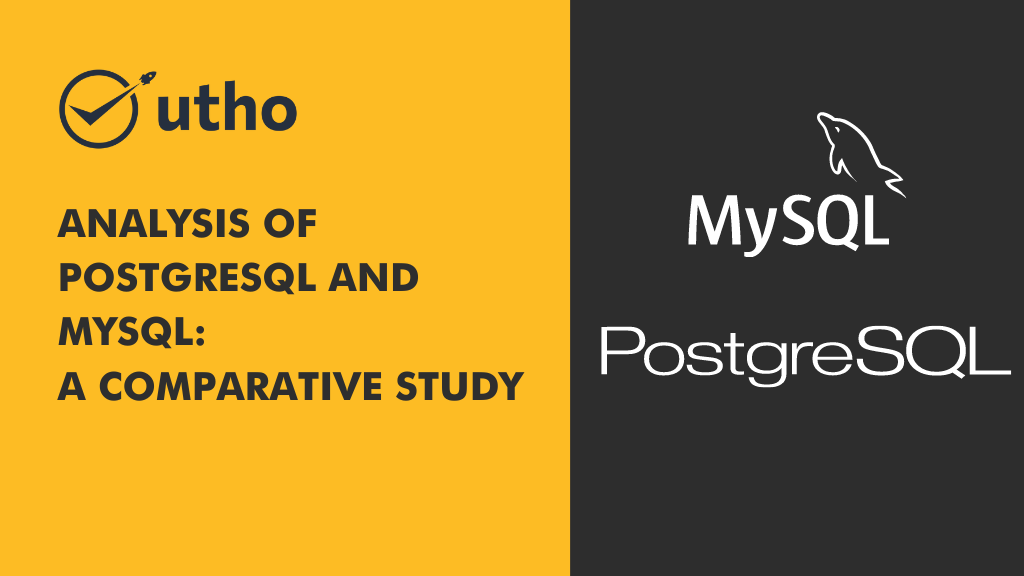PostgreSQL and MySQL are among the most highly regarded open-source relational databases in the modern software landscape. PostgreSQL is highly advantageous for enterprise-level applications that involve frequent write operations and intricate queries. Its robust features make it a top choice for handling large and complex databases. On the other hand, MySQL is more suitable for beginners due to its easier learning curve. It allows for quicker development of new database projects from scratch.
Few reasons why more and more businesses are choosing PostgreSQL as their go-to database.
PostgreSQL simplifies the process of setting up and utilizing databases, whether on-premises or in the cloud. In environments with a significant number of databases, both private and public, automating the creation of PostgreSQL instances can significantly save time.
- PostgreSQL is reliable: PostgreSQL implements a Write-Ahead Log mechanism to safeguard against system crashes. This ensures that any committed transactions, that have not yet been written to the database, can be recovered by replaying the Write-Ahead Log. As a result, these transactions are successfully committed without loss of data.
- PostgreSQL is extensible : PostgreSQL is like a customizable toolbox. Its extensibility means you can easily add new tools or features to tailor it to your specific needs. You can create custom data types, operators, and functions, and even plug in entire extensions, making it flexible and adaptable for different uses.
- PostgreSQL is fast: PostgreSQL is a performance-enhancing feature that includes enhanced partition handling, increased efficiency in parallel processing, faster indexing speeds, and the elimination of concurrency barriers.
- PostgreSQL is secure: PostgreSQL is widely recognized for its strong focus on data integrity and robust security features, including row-level security and advanced authentication mechanisms. This reputation positions it as a highly secure database system.
What is MySQL and what is it used for?
MySQL is a highly efficient, dependable, and easily expandable open-source relational database system. It is specially developed to manage demanding, critical production applications with heavy data loads. As it is managed by a robust RDMS, MySQL is a widely used and user-friendly database that requires minimal resources in terms of memory, disk space, and CPU usage.
- MySQL is widely compatible: Despite its frequent association with internet applications and web services, MySQL was purposefully designed to have broad compatibility with a range of technologies and architectures. It is supported on all major computing platforms, including Unix-based systems like various Linux distributions and Mac OS, as well as Windows.
- MySQL databases are relational: Databases such as MySQL store data in various tables that are highly structured and separated, rather than relying on a single comprehensive repository or collections of unstructured documents. This design enables RDBMSs to efficiently optimize processes such as data retrieval, information updates, and more advanced actions such as aggregations.
- MySQL is open-source: These options offer organizations a higher degree of flexibility when considering utilizing MySQL. The open-source nature of the releases, which are publicly and community-driven, enhances MySQL's documentation and online support culture, while also guaranteeing that any new or ongoing developments remain in line with current user demands.
Which is better MySQL or PostgreSQL?
Although MySQL and PostgreSQL possess several similarities, the variances between them are substantial and may cause confusion for both novice and expert database managers. It is evident that MySQL has effectively enhanced itself to remain pertinent, while PostgreSQL stands out for its lack of licensing requirements and additional features such as table inheritance, rules systems, custom data types, and database events. As a result, PostgreSQL takes the lead over MySQL in this regard.
How can Utho support your PostgreSQL and MySQL requirements?
Utho provides a range of services to fulfill your MySQL and PostgreSQL needs.
Utho Relational Database Service is a comprehensive suite of managed services designed to streamline the process of setting up, managing, and expanding relational databases in the cloud. Through our flagship offering, Utho RDS for MySQL, users can quickly deploy scalable MySQL servers with minimal effort and cost-effective options for resizing hardware capacity.
Similarly, Utho Relational Database Service for PostgreSQL makes it easy to set up, operate, and scale PostgreSQL deployments in the cloud. Furthermore, it efficiently handles intricate and labor-intensive administrative responsibilities, including upgrading PostgreSQL software, managing storage, and performing backups to ensure disaster recovery.
Get started with MySQL and PostgreSQL on Utho by creating a free account today.




